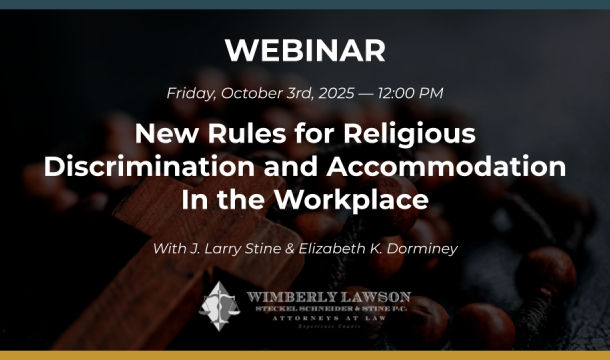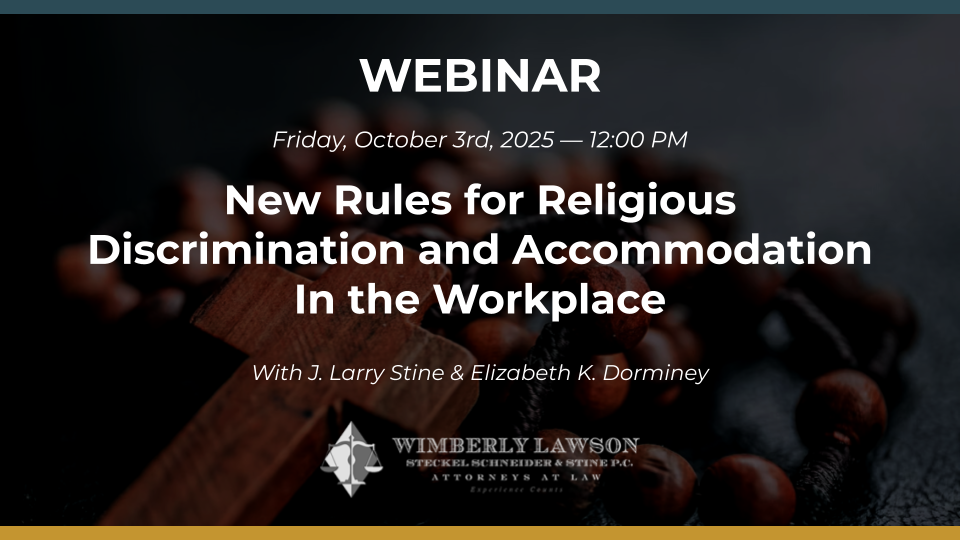It’s All Fun and Games Until That Meme Turns Up as a Deposition Exhibit
Everybody loves a good meme (and its animated cousin, the GIF), which is the perfect example of a picture being worth a thousand words. As an attorney who defends employers in litigation, however, one of my nightmare scenarios is seeing a racist/sexist/anti-immigrant/etc. meme posted or shared by a supervisor or manager being identified as an exhibit in that supervisor's or manager's deposition.
Just as social media posts can be used against plaintiffs in litigation, the same can be said for supervisors and managers. Supervisors and managers act for the company, so when one of them posts something on social media that can be construed as discriminatory, it reflects badly not just on that individual, but on the company as well. This means that a company needs to train supervisors and managers to understand that their speech at work and outside of work can put the company at risk of liability. And that speech encompasses verbal speech as well as social media posts, tweets, and emails. [Whether a supervisor or manager should be "friends" on social media with subordinate employees is an issue for a separate blog post].
And memes. Some people think nothing of sharing a funny meme that he or she has seen on someone else's page. Even though the sharer did not write the text, by sharing it, he or she is communicating implicit approval of its content, unless the sharer writes something that shows disapproval. When controversial issues are discussed on social media, it seems like many people like and share memes that resonate with their feelings and beliefs. Some of these memes may say things that the liker or sharer would never dare say out loud. Once shared, however, the meme is out there and associated with the sharer.
Here is an example of how this can be used against a supervisor and the company: Supervisor Z has been accused by a subordinate female employee of sex discrimination. Supervisor Z and the company deny that discrimination has occurred. At some point, Supervisor Z shares a "funny" meme on social media about boobs. When that meme is printed out and shown to the supervisor in a law firm conference room during a deposition in a lawsuit alleging sex discrimination, it is not so funny anymore. It will be even less funny if it is a trial exhibit and there are women on the jury.
Pro tip: Supervisors and managers need to understand that their words and actions can support—or undermine—company policies, such as the company EEO policy. This concept should be regularly reinforced on meetings and training sessions.

Kathleen J. Jennings is a former principal in the Atlanta office of Wimberly, Lawson, Steckel, Schneider, & Stine, P.C. She defends employers in employment matters, such as sexual harassment, discrimination, Wage and Hour, OSHA, restrictive covenants, and other employment litigation and provides training and counseling to employers in employment matters.
Related Content
Get Email Updates
Recent Content

Trump Nominates Appointments to NLRB and EEOC but Policy Changes Likely to Be Delayed

DOL Launches Self-Audit Programs Designed to Help Employers Improve Compliance

DOL Must Release EEO-1 Reports to the Public under Open Records Laws

Current Advice on Active-Shooter Situations

New Policy for Federal Workers and Religious Expressions

